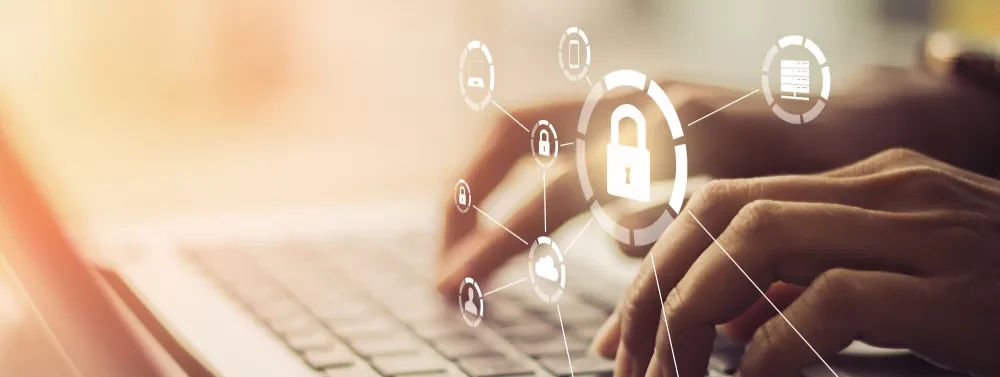The Covid-19 pandemic caused many companies to work from home. Some companies’ work forces are entirely remote. Others are using a more hybrid approach. Some of their employees are working from home and some are working from the office. In both cases, we are learning how to navigate a new work environment. This building trend in remote work has been on the rise for a long time, but in the last 6 months has had more movement than the last 20 years combine!
For many of us, working from home may be a big part of our future, even after the pandemic. This month, we want to discuss some reasons why you may want to consider moving to a virtual office. This week we will focus on the most important reason: security!
The Virtual Office
When some of you hear the term “virtual office,” you are probably thinking of someone doing all of their work online from their computer at home in their pajama bottoms. While that is true, what we mean when we say “virtual office” is something more specific than that.
A proper virtual office allows someone to “go to work” in the most literal way possible without leaving their home. All the software and data that your employees would need when working from home is available after logging into your system. This is often accomplished by logging onto your company’s webpage. Once inside, your employees can do anything that they need to do. From this virtual office they would be able to access every software your company uses, including accounting packages. The best part, they can access it without storing any information on their computer itself.
Virtual Office vs. VPN
Some of you may be thinking “Oh! They’re talking about a VPN.” While VPNS share some similarities with virtual offices, there are a few important differences. VPNs work by encrypting the communication between you and the website you are visiting. However, once you contact that website, you are still vulnerable. What if the site uses cookies to track you? What if their servers have been compromised? Unfortunately, and terrifyingly, that VPN isn’t going to be able to protect you from either situations.
VPNs are also often used on a network. While it is true that a network will be better protected with a VPN than without one, if any devices on the system get infected then your entire network is at risk. Even entire VPN services have been hacked in recent months, which has left millions of customers vulnerable!
A Safe Solution
Virtual offices are one of the safest ways for your employees to work remotely. The biggest reason for this is the lack of any software on your employees’ own computers. Even if their computer gets hacked, there’s nothing on the hard drive of the computer that belongs to the company. In addition, unless someone physically looks over their shoulder there is no way for them to see what they are doing.
Hackers often use the connection between your computer and the server (website’s hosting server) you are communicating with to glean information. It’s similar to being wiretapped: the person listening in can hear what you are sharing with your friend. With a virtual office, you are basically entering a digital building, doing all your work inside, then leaving for the day. There are no transmissions to overhear.
Here’s an example to put things in perspective: Your child was doing school work on your computer, and opened an infected email. If you are using a virtual office, none of your company files, passwords or any other data will be in danger. The only way to access that information is to have the credentials to the entire system.
But what about if someone is able to steal your password? Entering a virtual office requires a password and multi-factor authentication that is monitored by your MSP. While any system can theoretically be breached, this layered protection is about as ironclad as today’s technology allows.
A Smart Solution
We would be lying if we said that virtual offices are 100% safe and completely impenetrable. Even a castle doesn’t rely solely on bricks and mortar to protect the people inside. The design, workmanship and upkeep are what stop enemies from rushing in.
It is important to understand how a virtual office works as well as what the best practices for implementation and maintenance are. Careful and deliberate construction and upkeep will decide the quality of your system in the end. Virtual offices can be complicated to set up and get used to, but after working with them, the new peace of mind your company receives will make you wonder why you didn’t do it years ago.
Virtual offices aren’t something to put together by yourself while following a YouTube video. It is important to work with a company that knows what they are doing. They will know how to make a virtual office for working from home safe and secure as possible. Especially since a virtual office is equivalent to putting all of your crucial information in one accessible location. Making sure it is a resource for you but not a point of vulnerability for others to utilize will be critical.
Our company knows what needs to be done and understand the very real danger of not doing it right the first time. If you are finding your workplace is becoming more sparse as remote work takes prevalence, please reach out! We would be happy to go over your specific needs and develop a solution that will keep your workplace secure while you work from home.

